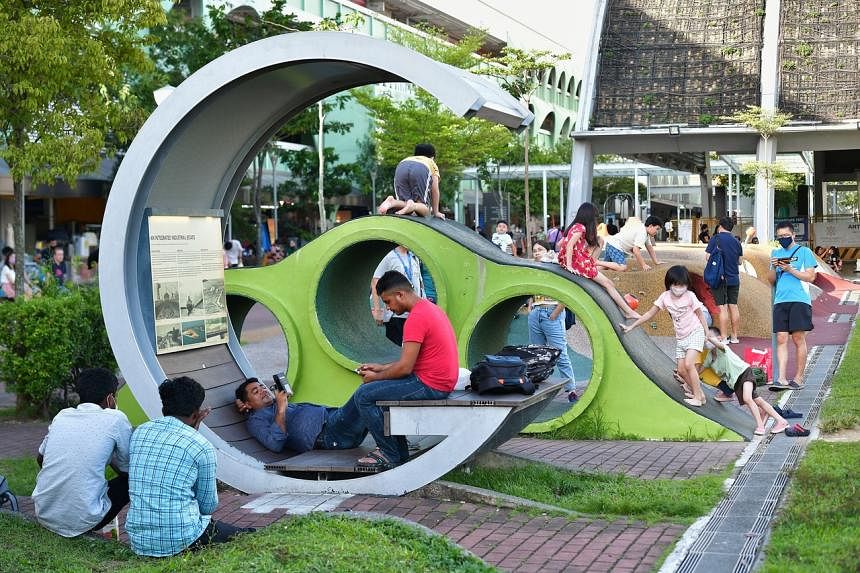SINGAPORE - Singapore’s High Commissioner in London has responded to a report in the Financial Times (FT) newspaper that said migrant workers in Singapore were suffering in an ongoing lockdown.
Mr Lim Thuan Kuan said in a letter published in FT on Monday (June 13): “As we told your correspondent, currently no migrant worker who wishes to leave his dormitory is restricted from doing so.
“Applications for community visit passes are approved almost automatically. We intend to free up further at the end of this month."
He wrote: “Contrary to your report, the Singapore Government has cared for migrant workers throughout the pandemic, just as it has cared for Singaporeans and other residents.”
His comments come after FT published a news article authored by its Singapore correspondent Oliver Telling titled Migrant Workers Suffer In Singapore’s Hidden Lockdown on June 7.
The article had claimed that the freedom of many migrant workers in Singapore remains severely curtailed, more than two years after the nation’s first Covid-19 lockdown.
It said the only accessible areas where thousands of such workers can spend time outside their dorms freely are eight recreation centres for migrant workers.
It also cited a migrant worker saying the restrictions were “not fair” and “discrimination”.
The article said the Government had responded harshly when the Covid-19 outbreak happened in the migrant workers’ dorms in April 2020, “quarantining workers in dormitories where more than a dozen men were often packed into one room and as many as 200 shared washing facilities”.
It also said the authorities committed to improving standards “following widespread reports of attempted suicides by workers confined in such conditions”.
In his letter responding to the article, Mr Lim, Singapore’s High Commissioner to the United Kingdom, said this allegation that “widespread reports” of attempted suicides prompted the improvement of dormitory standards is untrue.
“First, suicide rates among migrant workers are lower than for the general community. And second, we have long taken pains to improve living conditions for our migrant workers, and will continue to do so,” he said. “Singaporeans are conscious we owe migrant workers a debt of gratitude.”
Mr Lim noted that Singapore provided comprehensive medical support to all its migrant workers, such as vaccinations at the same time as for citizens, free and at taxpayers’ expense.
“Currently, a higher proportion of migrant workers are fully vaccinated than our citizen population,” he wrote.
“There were just two Covid-19 fatalities among migrant workers residing in dormitories early on in the pandemic before vaccinations were available, and none thereafter. That is a mortality rate of 7.2 per million, 35 times lower than Singapore’s 250 per million and 350 times lower than the UK’s 2,500 per million,” he said.
“We also made sure our migrant workers continued to be paid even when the country was under lockdown and they were unable to work. How many countries did this?”
Mr Lim added: “As we brought the pandemic under control, we progressively eased restrictions on migrant workers living in dormitories.”
Currently, migrant workers in dorms must apply for an exit pass to visit the community for leisure or personal purposes as part of measures to control the spread of Covid-19.
Last Friday (June 10), the Ministry of Health announced that they will no longer need an exit pass from June 24. However, they will need to apply for a new visit pass to go to four popular locations – Chinatown, Geylang Serai, Jurong East and Little India – on Sundays and public holidays.

